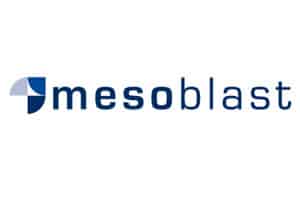 Shares in Australian biotech Mesoblast have surged after the company reported encouraging results from a clinical trial of a stem cell-based therapy for patients with rheumatoid arthritis (RA).
Shares in Australian biotech Mesoblast have surged after the company reported encouraging results from a clinical trial of a stem cell-based therapy for patients with rheumatoid arthritis (RA).
The data comes from the first cohort of a phase II trial of its mesenchymal precursor cell (MPC) product, which recruited RA patients who were refractory to treatment with biologic therapies including tumour necrosis factor (TNF) alpha antagonists.
A single dose of MPC-300-IV (rexlemestrocel-L) given at a dose of 1m cells per kilo of body weight was able to achieve a 20% improvement in RA symptoms – known as an ACR 20 response – in nearly half (47%) of treated patients, compared to 25% of a placebo group. Impressively, some of the responses occurred in as little as one week.
Similarly, a 70% improvement (ACR 70) was seen in 27% of the MPC-treated group, with no patient in the placebo group showing that level of response. The cell infusions appeared to be well-tolerated with no cell-related adverse events, according to the company.
The preliminary data come from a group of 24 subjects out of a recruitment target of 48 patients for the study. The second cohort – which will use a 2m/kg dose of cells – is due to report data in the third quarter of this year.
Analysts Katherine Genis and Dennis Hulme at Edison said in a research note that the data “represent impressive efficacy in refractory patients”.
They note the results are comparable to response rates seen to TNF alpha inhibitors in first-line therapy and better than Pfizer’s JAK inhibitor Xeljanz in comparable biologic-refractory patients, achieving an ACR 70 of 10%-14% in this patient group.
Pfizer’s drug brought in more than $500m in sales last year, while the TNF inhibitors as a group bring in sales of tens of billions of dollars worldwide across RA and other indications such as psoriasis and inflammatory bowel disease.
“Despite advances in the use of biologic agents, approximately one third of RA patients either do not sufficiently respond or cannot tolerate these agents,” according to Mesoblast.
“There is a clear need to deliver a safe and effective treatment, without the potential risk of opportunistic infections or malignancies.”
Mesoblast’s MPCs are off-the-shelf, allogeneic stem cell therapies that do not rely on harvesting cells from individual patients or matching patients with donors.
The approach has already yielded its first commercial product – a treatment for graft versus host disease (GVHD) in transplant patients licensed to JCR Pharmaceuticals, which is due to launch onto the Japanese market this quarter.
Meanwhile, Mesoblast is due to report clinical data from a trial of its Teva-partnered MPC-150-IM treatment in heart failure in the third quarter, as well as studies in GVHD and back pain before the end of the year.
The potential of the MPC approach prompted Celgene to take a minority stake in the Australian company last year.




